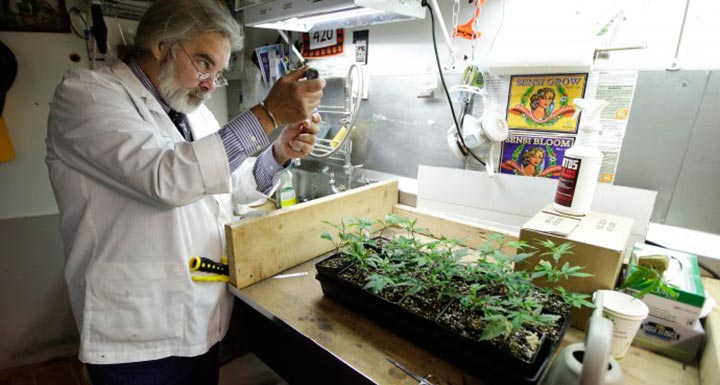
Charlotte’s Web: John Armstrong’s way or forget about it
Florida Secretary of Health John Armstrong provided a House committee Tuesday an overview of the work done by DOH’s 15,000 employees. Armstrong spent about as much time discussing yellow fever as he did about crafting a rule for a medicinal marijuana law approved by lawmakers May, 2014.
Armstrong told the House Health Quality Subcommittee that DOH was actually a communications company, “We seek to inform,” he said.
I have a cache of unresponsive emails to questions I’ve asked that suggest otherwise. The back story on that is here.
But like Plato’s prisoners, I think I’m starting to figure out what DOH’s shadowy communication style is saying about regulations for a law authorizing five licenses to grow marijuana and dispense oil from the plant for children afflicted with epilepsy.
Do it Armstrong’s way or forget about it.
Despite having 90 lawyers on staff, DOH missed a Jan. 1 deadline to have a regulatory structure in place for a medicinal marijuana industry when Judge David W. Watkins invalidated its proposal for lacking logic and exceeding the agency’s authority.
After Tuesday’s committee meeting, I got a 56-second interview with the Secretary.
Armstrong is gracious with a strong handshake and a warm inviting smile – just like most of the people who live inside the Capitol political/media bubble. However, he is not a communicator.
This week DOH announced it wants to enter into negotiated rulemaking with stakeholders. It is an idea first proposed at the first Charlotte’s Web public meeting DOH held in July.
“Our focus is to get a (cannabis) product as quickly and safely as possible to children and their families dealing with refractory epilepsy and to adults with advanced cancer,” Armstrong explained. “And as a sign of that focus we have moved past the initial rulemaking process to a process of negotiated rulemaking to bring the stakeholders to the table and to say what does it take to get this framework established so that we can get this product to the children and adults with cancer as quickly as possible.”
“This is the right step and I am confident that we’re going to get the framework established so that this product can get established in Florida,” said Armstrong.
Armstrong was asked how this (process) is different but an aide stepped in to say, “He provided the answer,” while Armstrong hurried down a hallway to what was explained as another meeting.
State Rep. Matt Gaetz was a House sponsor of the Charlotte’s Web law, and defends the department.
“The department promulgated a rule and one administrative law judge stood in the way of care for a large number of vulnerable Floridians,” said Gaetz. “A judge the department had no control over stopped the wheels of progress from moving.”
Judge David W. Watkins agreed with stakeholders who repeatedly warned DOH during three public hearings held over the summer that it was misreading the Compassionate Cannabis Act of 2014 and was inviting a lawsuit with its proposed rule
The department now is asking stakeholders to participate in two-days of meeting in February to hammer out a rule. And while the department has no control over a judge it has leverage on the stakeholders.
An agreement needs to be reached by March so that lawmakers can ratify it during the 2015 session. If someone challenges the rule and a judge again invalidates it then the parents of children with severe epilepsy may want to explore one method of treating the affliction – have half the kid’s brain removed – rather than wait for the Florida Legislature’s 2016 session.
(From: Saint Peters Blog)

